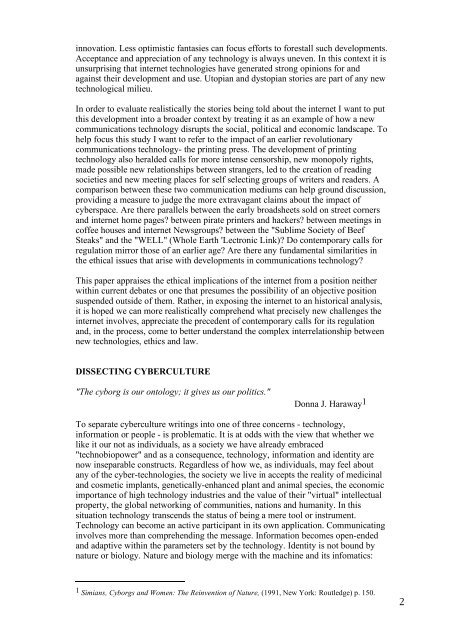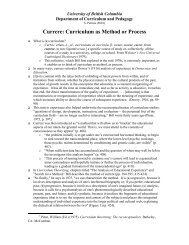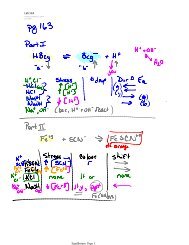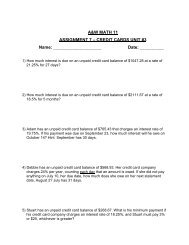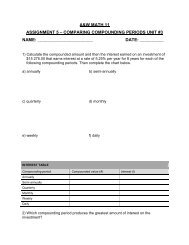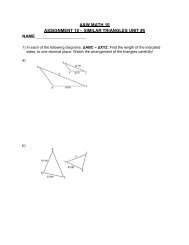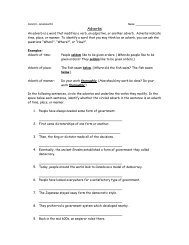ETHICAL BOUNDARIES AND INTERNET CULTURES
ETHICAL BOUNDARIES AND INTERNET CULTURES
ETHICAL BOUNDARIES AND INTERNET CULTURES
You also want an ePaper? Increase the reach of your titles
YUMPU automatically turns print PDFs into web optimized ePapers that Google loves.
innovation. Less optimistic fantasies can focus efforts to forestall such developments.<br />
Acceptance and appreciation of any technology is always uneven. In this context it is<br />
unsurprising that internet technologies have generated strong opinions for and<br />
against their development and use. Utopian and dystopian stories are part of any new<br />
technological milieu.<br />
In order to evaluate realistically the stories being told about the internet I want to put<br />
this development into a broader context by treating it as an example of how a new<br />
communications technology disrupts the social, political and economic landscape. To<br />
help focus this study I want to refer to the impact of an earlier revolutionary<br />
communications technology- the printing press. The development of printing<br />
technology also heralded calls for more intense censorship, new monopoly rights,<br />
made possible new relationships between strangers, led to the creation of reading<br />
societies and new meeting places for self selecting groups of writers and readers. A<br />
comparison between these two communication mediums can help ground discussion,<br />
providing a measure to judge the more extravagant claims about the impact of<br />
cyberspace. Are there parallels between the early broadsheets sold on street corners<br />
and internet home pages? between pirate printers and hackers? between meetings in<br />
coffee houses and internet Newsgroups? between the "Sublime Society of Beef<br />
Steaks" and the "WELL" (Whole Earth 'Lectronic Link)? Do contemporary calls for<br />
regulation mirror those of an earlier age? Are there any fundamental similarities in<br />
the ethical issues that arise with developments in communications technology?<br />
This paper appraises the ethical implications of the internet from a position neither<br />
within current debates or one that presumes the possibility of an objective position<br />
suspended outside of them. Rather, in exposing the internet to an historical analysis,<br />
it is hoped we can more realistically comprehend what precisely new challenges the<br />
internet involves, appreciate the precedent of contemporary calls for its regulation<br />
and, in the process, come to better understand the complex interrelationship between<br />
new technologies, ethics and law.<br />
DISSECTING CYBERCULTURE<br />
"The cyborg is our ontology; it gives us our politics."<br />
Donna J. Haraway 1<br />
To separate cyberculture writings into one of three concerns - technology,<br />
information or people - is problematic. It is at odds with the view that whether we<br />
like it our not as individuals, as a society we have already embraced<br />
"technobiopower" and as a consequence, technology, information and identity are<br />
now inseparable constructs. Regardless of how we, as individuals, may feel about<br />
any of the cyber-technologies, the society we live in accepts the reality of medicinal<br />
and cosmetic implants, genetically-enhanced plant and animal species, the economic<br />
importance of high technology industries and the value of their "virtual" intellectual<br />
property, the global networking of communities, nations and humanity. In this<br />
situation technology transcends the status of being a mere tool or instrument.<br />
Technology can become an active participant in its own application. Communicating<br />
involves more than comprehending the message. Information becomes open-ended<br />
and adaptive within the parameters set by the technology. Identity is not bound by<br />
nature or biology. Nature and biology merge with the machine and its infomatics:<br />
1 Simians, Cyborgs and Women: The Reinvention of Nature, (1991, New York: Routledge) p. 150.<br />
2


